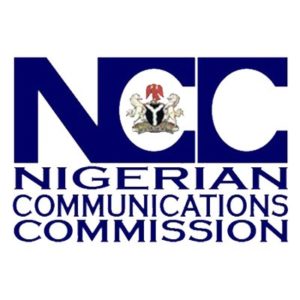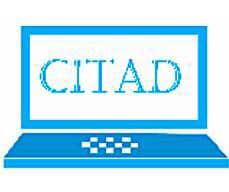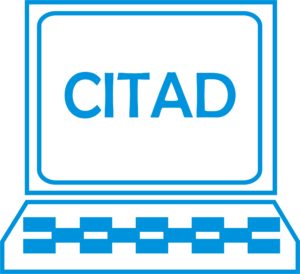
TEXT OF PRESS BRIEFING ON THE NEED FOR POLICY DIRECTIONS ON COMMUNITY NETWORKS ADDRESSED BY THE EXECUTIVE DIRECTOR OF CITAD, Y. Z. YA’U ON TUESDAY, APRIL 13, 2021 IN KANO
Introduction The Universal Service Provision Fund (USPF) is a statutory body established to address gaps in internet accessibility in the country by focusing on supporting initiatives that will drive internet connectivity to underserved and unserved areas in the country. Underserved and unserved areas exist largely because telecommunication market runs to where there is prospects for higher traffic and hence higher profit which poor communities or remote areas are unable to provide.
The logic of the interventions of the USPF which is based on global best practices is that since affordability is relative it is important for government to subsidise the poor to improve both their accessibility and affordability so that they are not left behind and constitute a drag to the use of digital technology to achieve national gaols such as the Sustainable Development Goals.
In its report of 2019, the USIP identified 114 connectivity gaps in the country as either underserved and unserved.
It defines underserved area “as an area where less than 50% of the households or individual users have access to a minimum of 1.5 Mbit/s†while it defines unserved communities as “area where less than 10% of households and individual users have either no access to internet or have the most basic access such as EDGE†But affordability is not limited and constrained by lack of accessibility only. When poor people cannot afford the cost of connectivity or data, connectivity becomes useless as it would not be utilized.
Poverty is a key a factor that makes it impossible for many people to use the internet. Many Nigerians are not able to afford regular use of data. Aside from inability to afford, there is also the fact that lack of satisfaction makes people to stop using the services. In Nigeria, with an apparent monopoly by the four mobile technology service providers, quality of service is not their priority.
They treat customers with no respect or regard because they are not penalized for quality of service falling below acceptable global benchmarks. Monopoly also controls the way people integrate with technology such that people are not able to learn, modify and remodify technology to suit their purpose.
There are therefore many reasons why the USPF model needs to be complimented. Moreover, the USPF model is geared towards supporting the market rather than communities and subsidy regimes often end up being more beneficial to the market players than to communities whose affordability it is supposed to raise.
The Concept of Community Network Increasing, both state and not state actors are realising that bridging the digital divide is not possible by treating communities as passive recipients of support or as market to be developed. Rather, the most effective strategy is to engage the communities to identify how they can, with support of from stakeholders, address their peculiar connectivity needs. This community-driven strategy is the catalysing of the flourishing of community networks. Community networks are providing platforms or channels for people to communicate. This communication could be between individuals, within the community or outside it.
The Internet Society defines community networks as “telecommunications infrastructure deployed and operated by a local group to meet their own communication needsâ€. This communication needs can be voice, data, etc and can be point of convergence for communities to come together to address their common community problems.
Community networks take different forms, with some extending access using commercial networks, others building their own source of connection, etc.
But because they usually connect the unconnected, they are considered as extending connectivity to the last file. However, because they are bottom up initiatives, rather than top-down, they are more appropriately described as providing connectivity to the first mile. Community network have become major tools for digital inclusion across the world today.
This is because they offer the following advantages: · Benefiting end-users and the community networks themselves with cost-oriented approaches; · Providing service that is tailored to the unique needs of the community; · Empowering local people, and thereby encouraging involvement in other grassroots efforts, community affairs, and political processes; · Encouraging digital literacy; · Providing a “stepping stone†for people to become part of the global economy; · Creating new working opportunities; and · Promoting the virtuous cycle by improving both access to and creation of local content and services. In addition, as community networks provide means to connect the connected, they are tools for promoting digital inclusion.
Because they are community planned, implemented and managed, they allow for greater control and autonomy over telecommunication infrastructure. As they involve people at grassroots, they allow for experimentation and for people to innovate and demonstrate their creativity. They make people to learn more about technology and to see technology more as a social tool for problem solving than just mere ante fact.
They bring many more digital solutions such as eHealth, eLearning, ecommerce, etc to communities that are excluded. Finally, they are more affordable.
Many people and organizations believe that owning the network provides self-determination over the prices and the services offered, and it keeps profits local instead of extracting them to external and even global players.
In many countries such India, Mexico, Brazil, etc, community networks have sprung up, providing connectivity in complementarity with market players, allowing individuals and communities to domesticate technology and be experimental and innovative on how they deploy and use it.
These are impacting positively in addressing the digital divides in those countries.
Here in Africa, countries like Kenya, Uganda, Ghana, South Africa, DRC, to mansion just a few, have developed policies that have supported the flouring of community networks in the countries, thus helping governments in those countries to move faster to achieve university connectivity and the digital inclusion of all of their citizens. The Situation in Nigeria There are very few community network operating in the country.
The two that have most extensive experience are the one in Kafanchan established in 2006 by Fantsuam Foundation, a civil society organization there and one in Ibadan, Ibadan WUG. In addition, the Nigerian Chapter of the Internet Society in partnership with Ahmadu Bello University, Zaria is establishing another in Zaria. There is also commercially driven community network coming on board, the best know is Fiam WiFi in rural areas of Lagos State.
The reason why community networks are slow to pick up in Nigeria is because we do not have policies to guide them nor does government provides support to encourage such initiatives. The regulatory framework at the moment does not provide for community networks as distinct providers of connectivity in the country. Indeed, neither the NCC Act nor the USPF Act have made mention of community networks, consequently there is a lacuna as to how community networks are to be treated.
For the moment, the few community networks are providing connectivity to underserve and unserved community by acting as point of farther distribution of connectivity provided by the main commercial players. For example, Fanstuam Foundation used to redistribute connectivity obtained from Airtel to its community.
Fiam WIFI is a licensed value addition firm that provides community networks by creating FIFI hotspots[1].
About four years ago, CITAD and Fanstuam Foundation approached the NCC with a request to be allowed to pilot the use of TV white space for community networks.
Eventually, the reply after several weeks was that the NCC had commissioned a firm to investigate and develop a framework for the use of TVWS to provide internet access in the country, hence it cannot grant the request.
Eventfully, a draft framework was developed in 2019 and subjected to a limited stakeholder consultation.
Although during the stakeholders consultation, in response to a direct question, the NCC assured that “the TVWS spectrum is intended to be free to use without licence on a first-come-first-served basis, but anyone running communication services must have an operating licence from the NCC (just to help them keep track of who is doing what where)â€[2].
For now, therefore, community network activists are not sure how to leverage the TVWS to provide community connectivity. Additionally, TVSW in Nigeria comes under two different regulatory regimes. National Broadcasting Commission (NBC) is in charge of assigning frequencies to broadcasters for their operations, meaning that anyone who wants to deploy TVWS would have to first approach NBC to assign a frequency to it.
On the other hand, Nigerian Communications Commission (NCC) is in charge of licensing and regulating communication services and anyone who obtains a frequency from NBC has to obtain operating license from the NCC.
The old National Broadband Plan (2013-2018) notes that “Civil society organisations fill important gaps in society, and support the efforts of government and private sector towards meeting agreed objectives†[3]community networks did not feature in the plan. There is no indication that these roles of civil society would be greatly facilitated by policy context that recognises community networks. Similarly, the National Digital Economy Policy and Strategy (2020-2030) has nothing to say about community networks. It recognises policy as one of the key pillars of the Strategy and listed 15[4] different relevant policies but none of it has anything to say about community networks.
The new National Broadband Plan (2013-2018), like the National Digital Economy Policy and Strategy, enumerated 14 different polices[5] that are needed to drive the Plan but no mention of policy on community networks.
Even the role of that was assigned to civil society organizations in the Old the National Broadband Plan seems to be obliterated in the new Plan.
Key documents of the USPF, the body set up to promote digital inclusion also do not speak about community networks. Instead, USPF uses the term Community Resource centres which it promises to establish in “partnership with local entrepreneurs and community-based organizations†the aim of which “is to extend voice, internet and ICT training and other e-services to unserved communities on shared basis and bridge the digital divide in the communitiesâ€[6] The cyberspace in Nigeria is characterized by different dimensions of the digital divide.
It manifests in gender forms, in differential in access and use between makes and female, it manifests as in age between younger generation who are ICT-savvy and older generations who are unable to adapt to digital work around, between better accessibility in urban areas and poor access in rural areas, etc. certain groups such as people living with disabilities, women in general. Older people and poor people in both urban and rural communities are digitally marginalized due to poor access and poverty that limits their ability to afford ICTs.
In addition, there are several areas/communities that are classify as either under-serve or unserved communities. Although the telecommunication sector in Nigeria is considered as one of fastest growing, there are still many people who are left behind. Statistics show that as at “September 2020, Nigeria has 205,252,058 active telephone lines, 107% teledensity, 151,512,122 active internet subscription, and 86,714,978 broadband subscription representing 45.43% of the populationâ€[7]. Rapid penetration according to the research by NCC is inhibited by among other factors poor power supply that affects both telecommunication companies and users, Destruction and Vandalism of Equipment, Over-Taxation, Import Obligations and Long Authorization Processes, Inadequate Roads and Social Facilities, Transmission Infrastructure Challenges. etc[8]
Recommendations
1. The NCC should come up with an appropriate policy that will encourage the flourishing of community networks in the country as a means to hasten digital inclusion in Nigeria
2. The USPF should support community networks initiatives across the country as part of its intervention to promote faster inclusion progress
3. Community network should be given license-free spectrum to use 4. Proof of concept permit in connection with community networks should be license free
5. Institutions of higher learning such as universities should embrace and deploy community networks to both meet their community needs and to serve as experimental sites for learning and domestication technology
6. Both the NCC and USPF should establish a unit with the responsibility of coordinating their affairs with respect to community networks
7. Doing away with some component of spectrum fees in exchange for commitment to rollout in specific unserved/underserved areas as provided in the Strategic Plan of the USPF Conclusion Community networks are tested across the global are seen as major tool to promote digital inclusion. Both the ITU and the Interne Society have invested in experimentation and development of policy framework to support countries to integrate community networks as a tier in the telecommunication sector that would provide community-control, community-managed networks that are more affordable.
[1] https://www.fiam.ng/
[2] https://medium.com/@dewoleajao/an-update-on-nigerias-broadband-via-tv-white-spaces-story-7941f1c2cc4d
[3] The Nigerian National Broadband Plan 2013 – 2018, page 76
[4] The National Digital Economy Policy and Strategy (2020-2030), page 22-23
[5] The Nigerian National Broadband Plan (2020-2025), page 49-52
[6] Universal Service Provision Fund Strategic Management Plan 2018 – 2022, page 34
[7] Challenges of Technology Penetration in an Infrastructure Deficit Economy (Nigeria Perspective), 2021, page 4
[8] Challenges of Technology Penetration in an Infrastructure Deficit Economy (Nigeria Perspective), 2021, page 47-49






